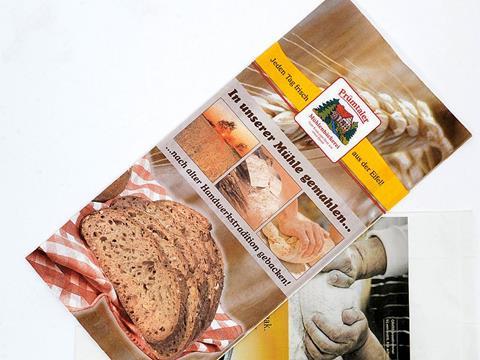
Doneck Network's newly certified printing ink series (DIN EN 13432) are suited to the printing of food packaging and tissue products made of paper and film.
“Green printing” is gaining in importance in the packaging industry. For that reason, the Doneck Network is focusing on this aspect together with consumer safety. In addition to the already compostable water-based ink series, the European printing inks manufacturer has now also had the compostability of major products from the solvent-based inks portfolio tested and certified.
“If desired, customers of the Doneck Network can thus fall back on a wide range of compostable products”, says Frank Hofmann, Product Director of the Doneck Network, commenting on this innovation of the Doneck Network.
The Doneck Network has compostable inks for the following areas of application:
Solvent-based ink series
Developed for the printing of carrier bags and packaging, the “Euro Bag” ink series impresses technically with outstanding gloss, good wrinkle recovery and abrasion resistance. The high pigment concentration at low viscosity enables perfect printing of both areas and fine lettering using flexographic printing. “Euro-Film” has been developed for the printing of film packaging. Doneck's portfolio includes the inks from the “Euro Max” series for compostable heavy-duty sacks for the packaging of foodstuffs and fertilisers, or for agricultural sacks. The printing inks are also suitable for the printing of film bags for detergents. High UV light stability and resistance to weathering is a must for this ink series. With the highly pigmented ink concentrates from the “Euro-Base” series you can manufacture numerous ink series for different applications through the addition of blends.
Water-based ink series
Doneck has developed the “Euro-Food” ink series for food packaging made of paper, for example bags and wrapping paper. It meets the requirements of the EN 646 standard for bleeding fastness and it is odourless with low migration. The printing inks from the “Euro Nap” series are ideally suited for tissue products such as serviettes, airlaids, paper handkerchiefs, toilet paper and tablecloths. The printing ink is odourless and ensures a good printing result on absorbent substrates. The “Eco-Film”, developed for the film processing industry, has a good freeze-fastness and is also suitable for hygienic packaging, e.g. for nappies and sanitary towels. The ink series mentioned have good machine running properties and result in a high gloss on printed products.
The printing ink series mentioned are all certified according to the label “OK Compost Industrial” for industrial composting plants (composting at 55 °C to 60 °C) and “OK Compost Home” for household compost (lower temperature). Compostability is checked in two steps according to the EN standard 13432: First of all, the Organic Waste Systems Institute carries out a heavy metals analysis. After that an ecotoxicity test is carried out. Following the successful tests and protocols, the certification is carried out by the TÜV Austria*.
“With the OK Compost ink series, we have reached a further milestone in our sustainability policy. With the motto “We think green!” we are obligating ourselves to preserving the environment and energy resources as far as possible, in addition to our climate-neutral manufacturing process. Doneck Euroflex has been purchasing CO2-neutral electricity and gas for years, in addition to which we participate in climate protection projects,” says Arndt Breitbach, Managing Director of Doneck Network.
Apart from the products mentioned, the Luxembourg-based Doneck Network's product range includes both solvent-based and water-based flexographic and gravure printing inks for such diverse areas of application as corrugated cardboard (pre and post-print), flexible packaging, composite films/laminates and much more besides.
*Note about composting:In order for packaging to be compostable, the additives such as adhesives and printing inks must not interfere with the biological degradability of the printed substrate and must not have any negative effects on plant growth. This ensures that the compost can be re-used, for example in agriculture or in garden markets.













